House investigative committee begins 3-day wildfire hearings in Pampa
PAMPA - The Panhandle Wildfire Investigative Committee, chaired by state Rep. Ken King of House District 88, kicked off its first day of hearings designed to improve the state’s response to disasters such as the Smokehouse Creek fire, which destroyed over a million acres, killed two, and destroyed property and thousands of livestock.
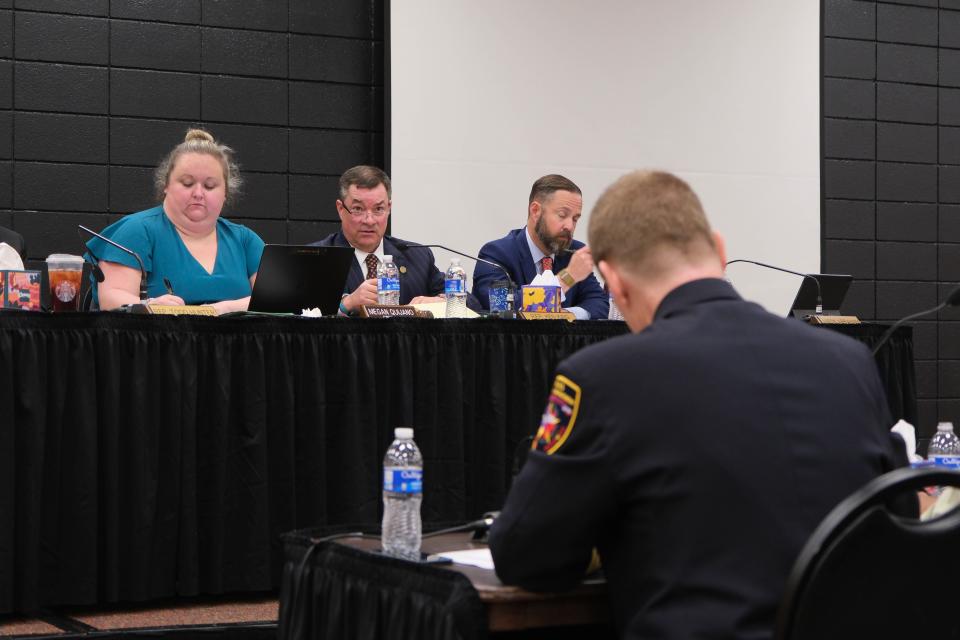
Over three days, the statehouse committee is holding hearings to determine what went wrong with the response and what can be done to ensure that the resources are available to respond to a fire of this magnitude.
Other select committee members include state representatives Dustin Burrows of Lubbock and Todd Hunter of Corpus Christi. Landowners Jason Abraham and James Henderson are also on the committee.
Afternoon session for day 2 of the Texas Panhandle Wildfires Committe meeting in Pampaq
Posted by Amarillo Globe-News on Wednesday, April 3, 2024
The first day Tuesday consisted of five panels with local and state emergency response leadership and other experts who could give input and answers about the recent fires. The first session of the morning featured Nim Kidd, chief of the Texas Division of Emergency Management; Al Davis, the director of the Texas A&M Forest Service; and Wes Moorehead, associate director and fire chief of the Texas A&M Forest Service; talking about their department's roles in stopping the spread of the recent wildfires.
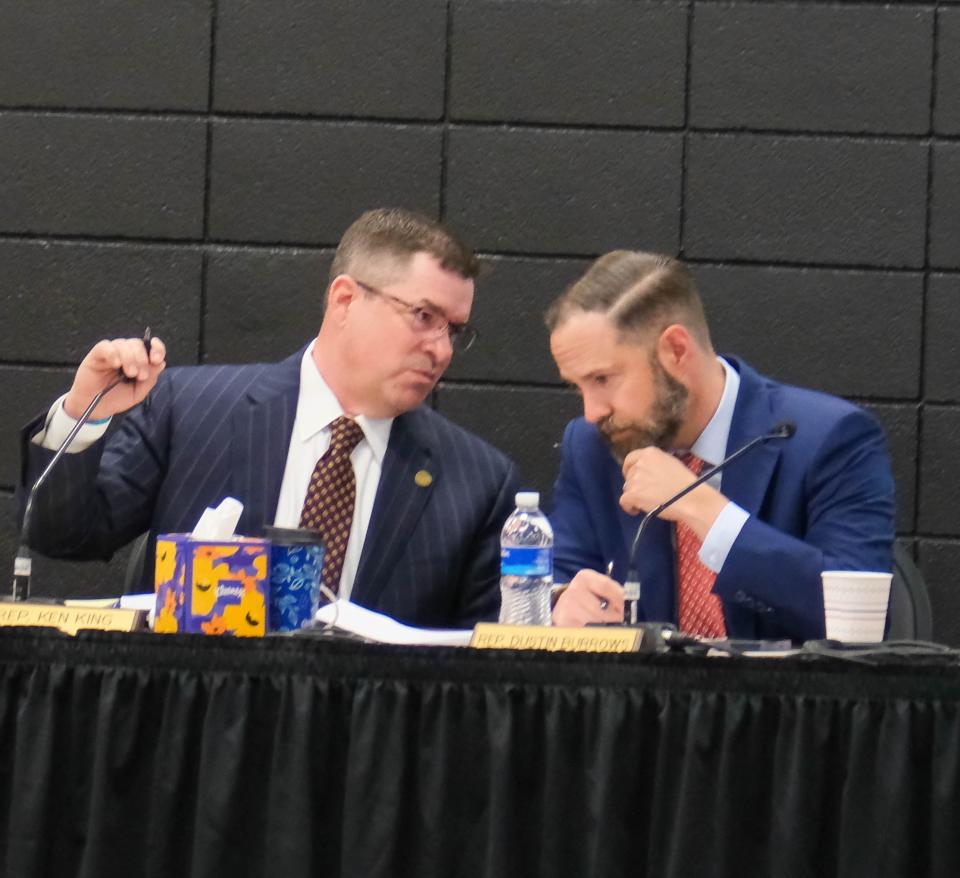
Kidd started the discussion by speaking about how the Texas Interstate Fire Mutual Aid System (TIFMAS) deployed a strike team to the area due to elevated critical fire conditions from Feb. 26 to 27. The team was in place on Feb. 24 based on weather conditions in the area. TIFMAS is an organization of primarily paid fire departments from across the state that supports other fire departments that can be called up by and paid by the state.
One of the principal areas of debate was the lack of air support to fight fires in the Texas Panhandle.
“My hope is that we will talk about owning our own aircraft in the state of Texas,” Kidd said. “And those who are positioned in the agency should be responsible for maintaining and keeping them ready. I hope we can have conversations about equipment in fire departments across the state and training in fire departments across the state.”
Kidd said that ideally, the region would have four to six firefighting aircraft at a cost of about $50 million to fight potential wildfires, which would alleviate the wait for contracted aircraft. Currently, the state has no aircraft for fighting fires, which are state assets.
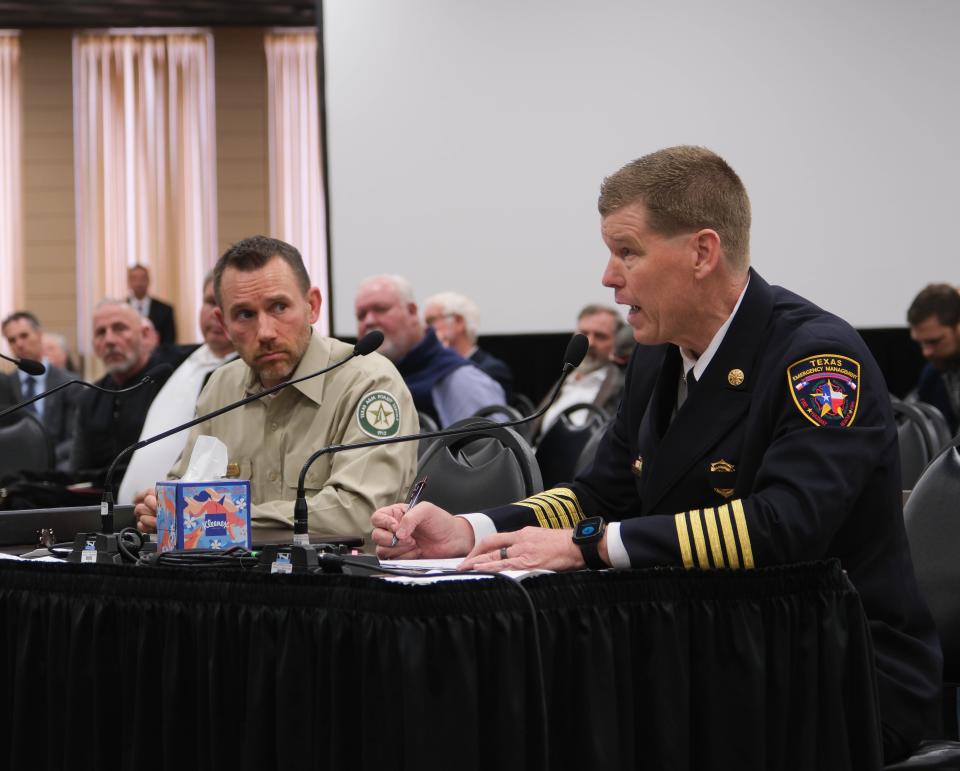
“This will not be an easy venture to start, and we will still need to continue with contracts until this is built up and people are trained,” Kidd said. "That would help us with our initial response when other contract aircraft are not available, and I think it is a great step going forward. We do not control our own destiny, and I want to control our destiny.”
Moorehead weighed in on the state's process for getting aircraft to the scene of a major fire.
"We do not have aircraft available 365 days a year,” he said. “At some point during that fire season, it will meet a threshold that aircraft should be utilized. Any given day aircraft likely won’t be available unless we have significant fire currents in the state or underlying factors show we could have fire currents.”
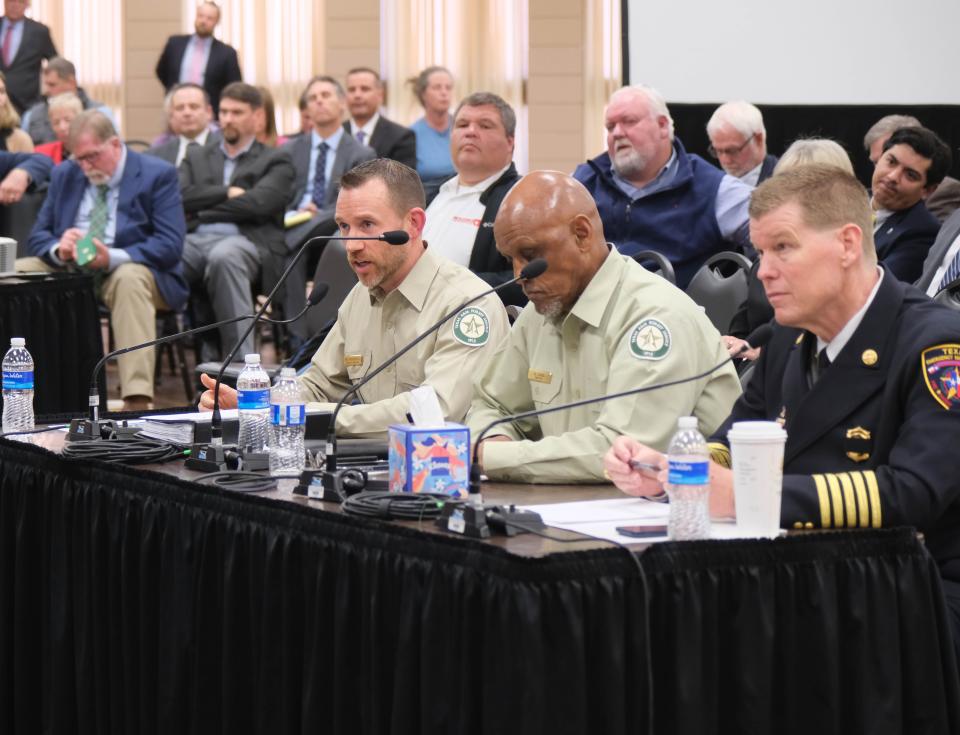
Committee members grilled Moorehead on the provisions to get aircraft in the air to fight the fires. Concern was raised that decisions that kept aircraft grounded could have been deployed to fight the fires, but Moorehead pushed back, saying that certain aircraft, such as single-engine tankers, can only fly up to 40 miles per hour and winds were gusting up to 60 miles per hour.
Also, Kidd addressed assertions from some that TIFMAS personnel did not integrate well with local entities to fight the fires or the perception that they were just camped out in Canadian at the base camp collecting a check from those in the region.
"Those base camps are under my discretion and authority; we are the ones who pay the bill for that,” Kidd said. "I appreciate the comments about how base camps are recognized when they come in, but they come in to support the hundreds to thousands of responders who are coming here to help you on your fire. As the chief of Emergency Management and the chair of the emergency management council, I can direct the Texas A&M Forest Service to come to this area.”
Kidd pushed back, saying that he felt firefighters in the TIFMAS program were being sent a bad message.
“You got thousands of local government firefighters today watching this hearing and all they are hearing from you is that you don’t want them in your neck of the woods anymore,” he said. “If that is not what you mean, I need you to redirect.”
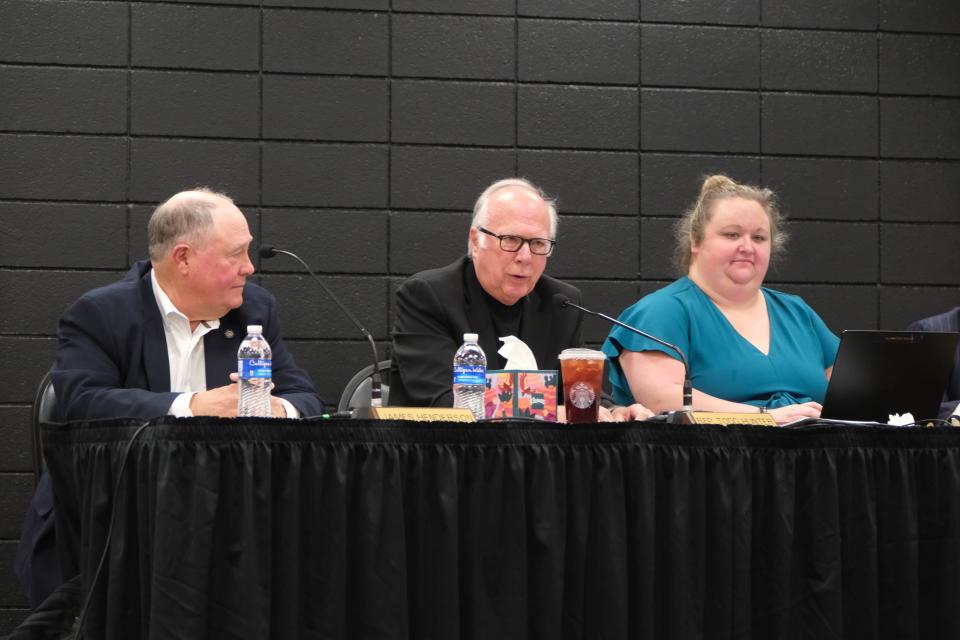
King assured Kidd that it was not the message being sent, but many people lost a lot, and there would be tough questions.
In the afternoon panel, local fire chiefs emphasized the need for more funding for rural departments, many of which are staffed by volunteers. More vehicles are needed to fight these types of fires, and communication needs to be upgraded in equipment and coordination with state agencies. Local fire departments asserted there were some issues in coordinating firefighting efforts with the state assets on the ground.
Day 2 of Texas Panhandle Wildfire Investigative Committee
Posted by Amarillo Globe-News on Wednesday, April 3, 2024
“Every fire has communication gaps,” Kidd replied. “The firefighters in this area did expert work. They could have done a better job tying in, but when you are in the middle of the fight, it is hard to pause and get everyone on the same page.”
Rep. King said a clear communication standard must be implemented due to the issues faced in the Smokehouse Creek Fire.
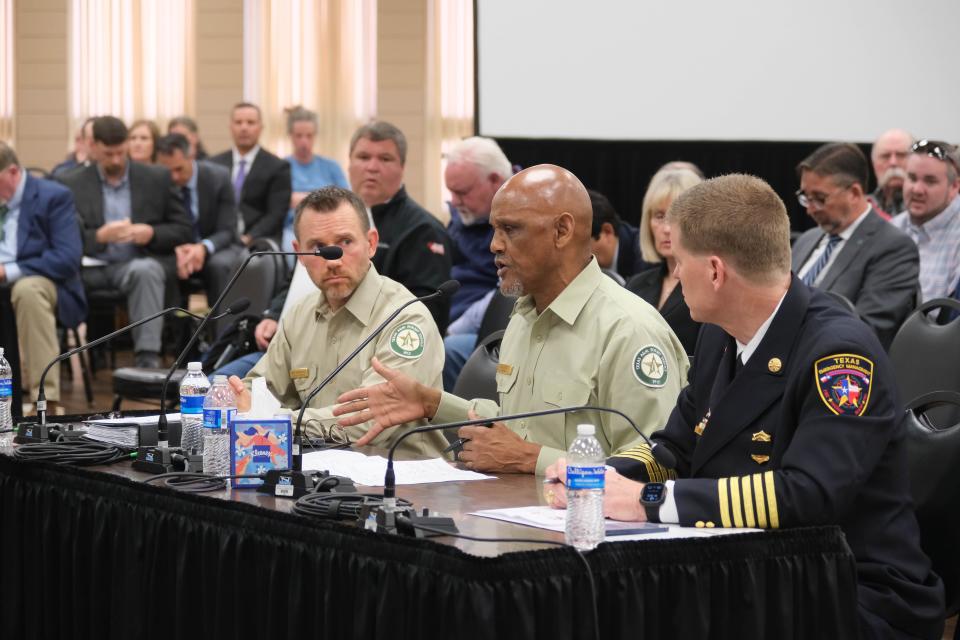
After the hearing, King spoke about the first day of the investigation committee.
“The theme of these three days was going to be about communication,” King said. “There was a lack of communication from the start of these fires until they were put out, and everybody who listened to the testimony today heard that. A lot of problems could have been solved with better communication.”
King said that a significant topic of Tuesday's discussion was how the state could invest more resources in the Texas Panhandle and avoid federal contracts.
“We need to find a way to have actual hard assets on the ground and figure out how the state can support those, as well as better funding for our volunteer fire departments,” King said. "Communication is also a big issue we have to address.”
King emphasized that the federal fire resources system did not work very well for the Texas Panhandle wildfires because the state had to request these assets. He felt that the state owning its own firefighting aircraft may need to be considered.
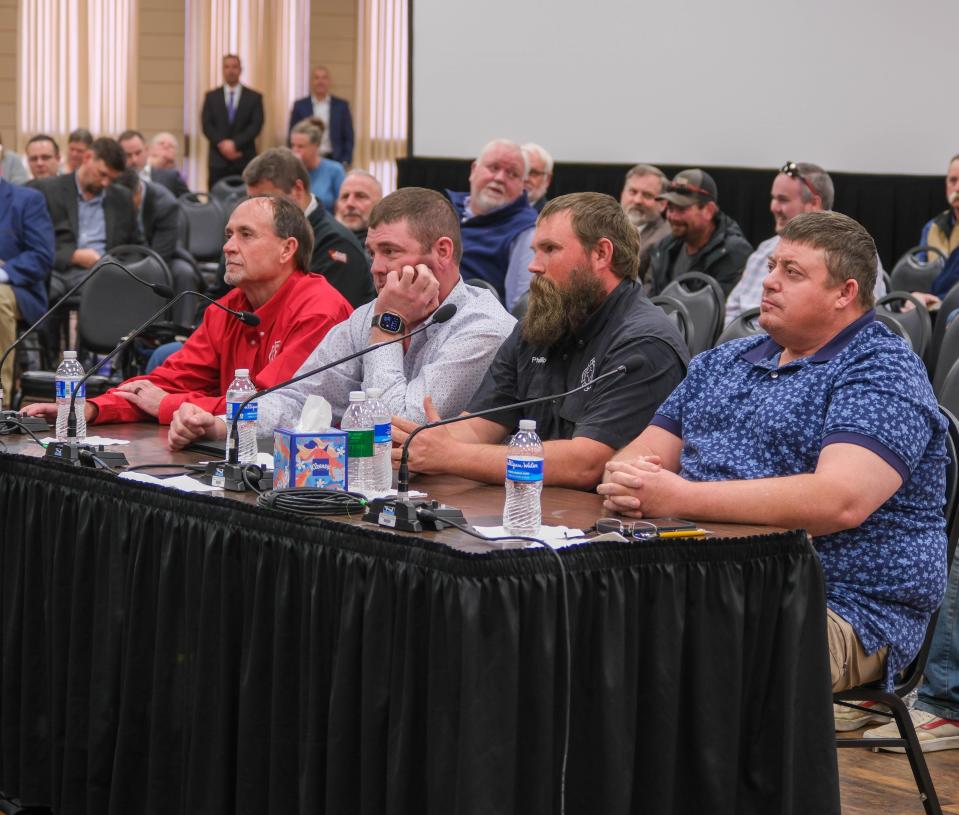
“If the resources had been in place when the fires first started, we had a chance, but by the time the resources were actually on the ground, we had 50-60 mph winds, which did us no good until the wind passed,” King said. "I think going forward, if Texas owns its own aircraft, it manages its own contracts, we would take one step out of the equation, and it certainly improves the communication from the very beginning.”
King says that where vehicles and equipment are staged in the state is a significant consideration for future endeavors and strategic water storage for this type of disaster. He also emphasized that the state has the resources to fund the volunteer fire department system needed in rural areas better.
“The effect of the loss of 10,000 cattle is going to have a statewide effect,” King said. “You cannot burn down this much of our state's agricultural center and not have it affect the whole state. I think when we complete the report, and the legislature understands the seriousness of this, we will have the resources in place.”
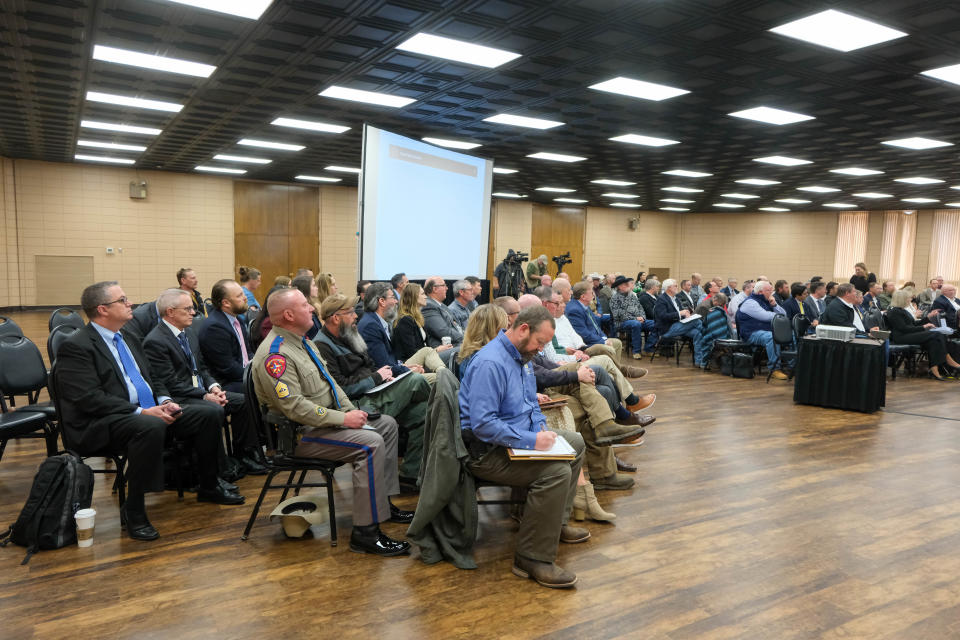
King said his committee's goal is to put things into place to mitigate future fires.
“Wildfires are not going to end; we are going to have another,” King said. "But Texas should be in a better position by the time this happens again to fight the next fire, so we do not have another million-acre fire. A large chunk of my hometown burned down, and it did not have to.”
According to King, time is of the essence in fixing the issues that caused so much devastation in the region.
“We have to do our work now to be prepared for the next session in January; when I said I wanted this wildfire committee and this is what I wanted to investigate, the next day, I had a proclamation from the Texas House Speaker because he knows the devastation this is going to cause issues on a statewide basis,” King said. "And if we do not take care of business now, we are not fixing anything in our next legislative session.”
The hearings continue Wednesday and Thursday in Pampa.
More: Wildfire lawsuits mount against utility companies
This article originally appeared on Amarillo Globe-News: Panhandle Wildfire Investigative Committee holds hearings

